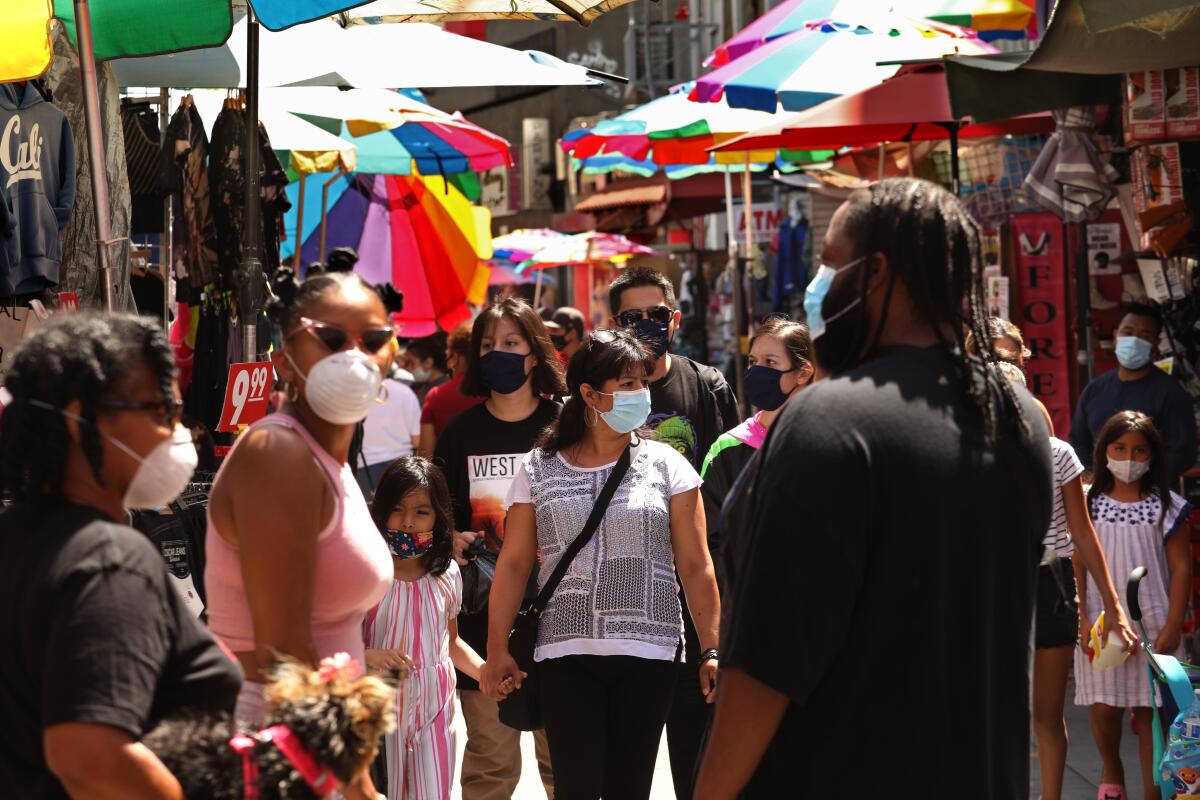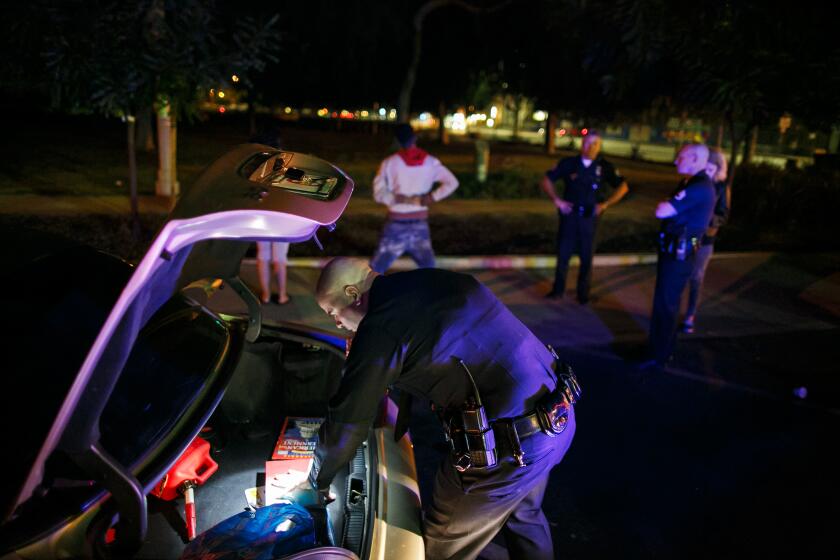Counterfeiting ring hit with $3.6 million in penalties, barred from downtown Fashion District

- Share via
Six members of a counterfeiting ring face $3.6 million in civil penalties and a 10-year injunction barring them from downtown L.A.’s Fashion District after selling thousands of knockoff luxury items, the Los Angeles city attorney’s office announced Tuesday.
Ivan “Puppet” Zamora, Arnold “Hustler” Estrada, David Montiel, Jose Guadalupe Perez Jr., Wilfredo Antonio Belloso Jr. and Julio Cesar Santana sold clothing and accessories made to appear as items from luxury brands such as Burberry, Chanel, Gucci and Louis Vuitton in the Fashion District and Santee Alley as far back as 2006, according to the L.A. County Superior Court judgment filed last month.
The subjects of the injunction, who had gang ties, also offered to sell Xanax and marijuana, according to the judgment.
“Selling knockoffs is a source of income for some criminal gangs, who can use that money to fund other illicit activities. Moreover, fakes often are made by victims of labor trafficking,” City Atty. Mike Feuer said in a news release. “It’s vital to continue to disrupt gang-involved counterfeit rings in L.A.”
Los Angeles police officers may no longer use minor code violations to conduct “pretextual stops” unless they have additional information about a serious crime.
The group reportedly oversaw a sophisticated operation that operated from sidewalks and storefronts to stairwells and parking lots and employed lookouts and radios to help move products and avoid detection.
The six men were hit with a $2,500 fine for the sale of each item made during undercover operations; fine totals for each person range from $12,500 to $1.3 million. They sold at least 1,439 counterfeit items, according to the judgment, which called that a “large undercount” of all the goods sold and possessed, because it represents only the items bought or otherwise recovered by undercover investigators.
More to Read
Sign up for Essential California
The most important California stories and recommendations in your inbox every morning.
You may occasionally receive promotional content from the Los Angeles Times.















